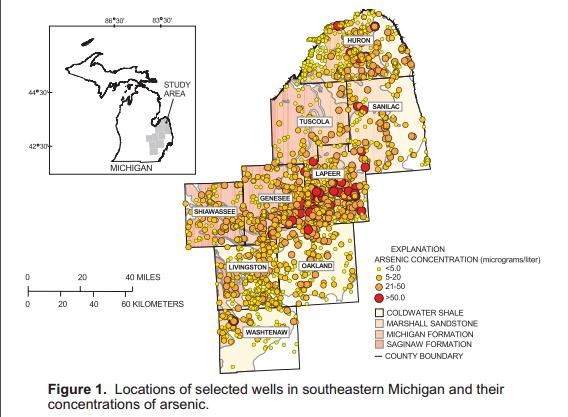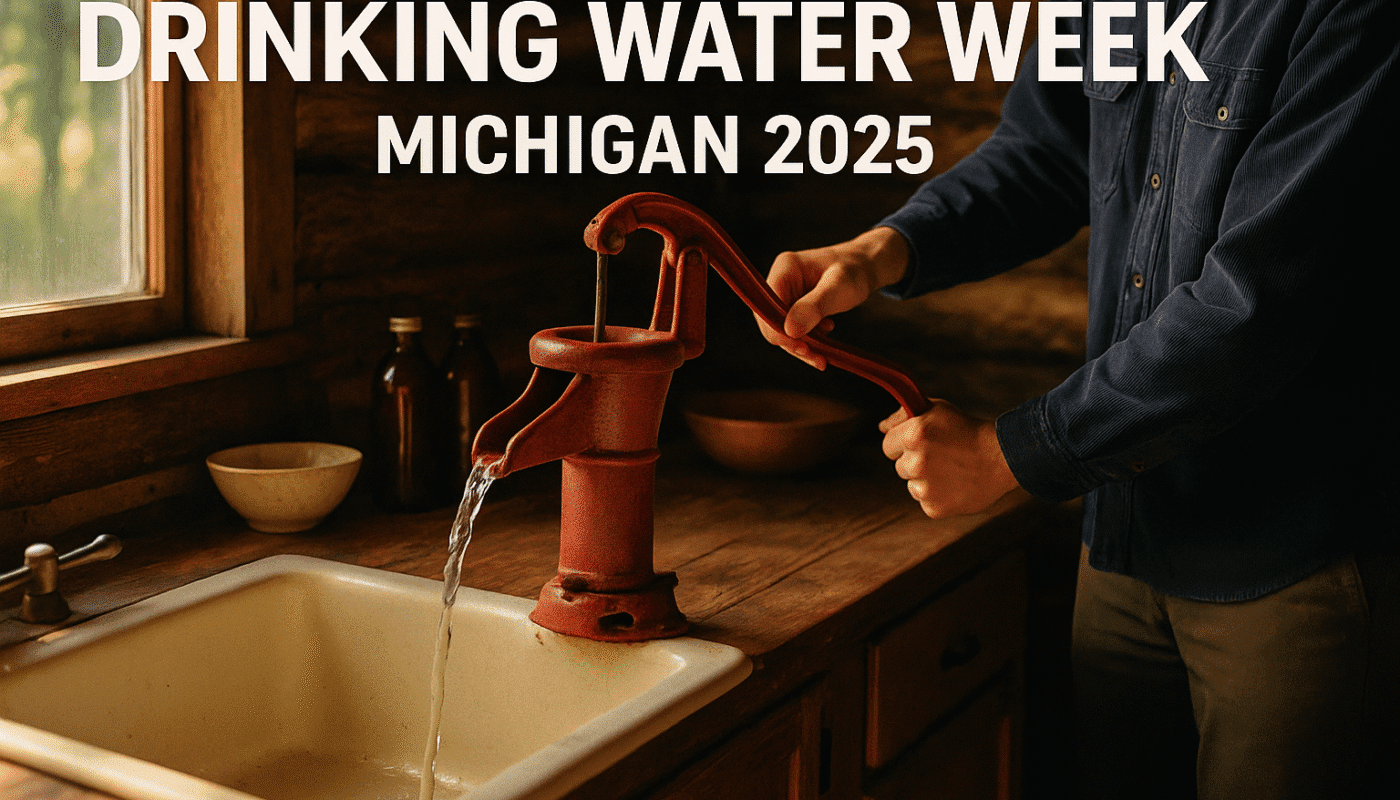Michigan kicks off Drinking Water Week by spotlighting infrastructure upgrades, water safety measures, and citizen responsibility in maintaining the state’s most vital resource, including Michigan drinking water.
Ensuring Safe Drinking Water in Michigan Requires Ongoing Commitment to Michigan Drinking Water
The first full week of May marks Drinking Water Week, and Michigan is sharply focusing on drinking water quality and infrastructure upgrades that impact every household in the state. Governor Gretchen Whitmer and Lieutenant Governor Garlin Gilchrist II have officially proclaimed May 4–10, 2025, as a period of reflection and action on Michigan’s drinking water systems, emphasizing the essential nature of clean water for public health, safety, and economic stability.
Michigan’s Thumb Noted For Arsenic Risks in Private Wells

Arsenic contamination remains a serious concern for many Michigan residents who rely on private wells. According to state studies, arsenic is naturally present in the groundwater across parts of Michigan, especially in the Thumb and southeastern regions. Long-term exposure to arsenic can lead to health issues including skin damage, circulatory problems, and an increased risk of cancer.
The contaminant is colorless, odorless, and tasteless, making it undetectable without proper testing. The post also stressed the importance of using certified labs for arsenic testing and considering water treatment options like reverse osmosis if elevated levels are detected.
Private wells are not regulated under the Safe Drinking Water Act, meaning it’s up to homeowners to monitor and test their water regularly. The Michigan Department of Health and Human Services (MDHHS) recommends testing for arsenic every three to five years, along with routine checks for bacteria and nitrates.
Water Infrastructure in Michigan Sees Record Investment and Upgrades
In the past several years, Michigan has invested over $4 billion to overhaul its water infrastructure, targeting lead service line replacements, PFAS remediation, and outdated sewer systems. According to the governor’s office, these initiatives have been critical in restoring trust in water safety after high-profile crises like the Flint water disaster. The state is also enforcing what it describes as the strongest Lead and Copper Rule in the country, a move hailed by environmental advocates as necessary but costly.
Michigan’s Great Lakes Advantage Comes With Responsibility
As the Great Lakes State, Michigan enjoys one of the world’s largest reserves of freshwater. However, experts warn that this abundance should not foster complacency. EGLE’s Office of the Clean Water Public Advocate (OCWPA) is using the week to promote educational webinars and community outreach, aimed at informing residents about their water sources, potential contaminants, and necessary precautions.
Thursday of Drinking Water Week is dedicated to Private Residential Awareness Day, a pointed reminder that about 2.6 million Michiganders rely on private wells, which require individual oversight and maintenance. Unlike municipal systems, these wells fall outside routine regulatory monitoring, placing the burden squarely on homeowners.
Water Testing: What Michigan Residents Need to Know
For residents wondering how their water stacks up, the state outlines three main categories of public water supplies:
- Type 1: Community systems with regular contaminant testing.
- Type 2: Noncommunity systems, like schools and restaurants, are also regularly tested.
- Type 3: Public water wells are tested at construction, with maintenance often left to property owners.
For private wells, the Michigan Department of Health and Human Services (MDHHS) recommends annual tests for bacteria and nitrates, and testing every few years for metals like lead and arsenic. Given heightened concerns over PFAS contamination, the state advises precautionary testing in affected zones.
Environmental Advocates Push for Federal Support and Stronger Standards
Water industry professionals, including engineers, scientists, and municipal staff, continue to work behind the scenes to ensure the quality of Michigan’s drinking water. EGLE has offered public webinars, like last year’s session on the Safe Drinking Water Act (SDWA), to provide guidance on how residents can learn more about water safety and get involved in local water governance.
Find More Interesting Feature Stories From ThumbWind
- Michigan Feature Stories – Unveiling the diverse and vibrant people, captivating places, and remarkable events that come together to make the Great Lake State unique and cherished by both residents and visitors alike.
- Weird Political News – A sarcastic take on official news from around the U.S., exploring the absurdities that often arise in the political landscape while providing a humorous perspective on current events and highlighting the quirks of politicians and policies.
- Michigan News – News and events from Michigan’s Upper Thumb region worth knowing, including local stories, impactful interviews, and updates on community happenings that shape the culture and lifestyle of the area.
Your Turn – Like This, or Loath it – We Want To Hear From You
Please offer an insightful and thoughtful comment. We review each response. Follow us to have other feature stories fill up your email box, or check us out on Newsbreak at ThumbWind Publications




